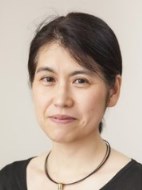
| Speaker | Prof. Michi Fukushima (Professor of Graduate School of Economics and Management, Tohoku University) |
|---|---|
| Time | Thursday, September 24, 5:00 PM - 7:00 PM |
| Venue | National Graduate Institute for Policy Studies, 4th Floor, Room 4B (ACCESS) |
| Sponsor | National Graduate Institute for Policy Studies (GRIPS) |
| Language | English |
| Fee | Free (Pre-registration required) |
| Document | Presentation Slides (1.7M) |
In this lecture, differences between cluster formation process in the U.S. and Japan are described. Especially I focus on the role of large companies and their collaborations with startups.
In the process of cluster formation, startups play the important roles, especially in the high-tech clusters. Most of startups and spinoffs don't stand alone, rather they are actively interacting with their surroundings (namely eco-system) and taking advantage of resources outside them. In the sense, it really matters for startups where they were located.
For past 30 years, Japanese government has made effort to create supportive eco-system all over the Japan. It is called "policy oriented cluster formation". On the other hand, in the U.S., some high-tech areas that have recognized as high-tech cluster are started by local initiatives in many cases. In addition, some spinoffs from large existing companies appeared in the early stage of cluster formation and they formed networks between them. As a result they turned into a hotbed for entrepreneurs.
The purpose of this lecture is to compare the ways of cluster formations of both countries and discuss how to use the implications for your country's policy making.
 grips.ac.jp. Registration email must include:
1) your name*, 2) institution*, 3) job title, and 4) contact information (email address or phone number)*.
grips.ac.jp. Registration email must include:
1) your name*, 2) institution*, 3) job title, and 4) contact information (email address or phone number)*.